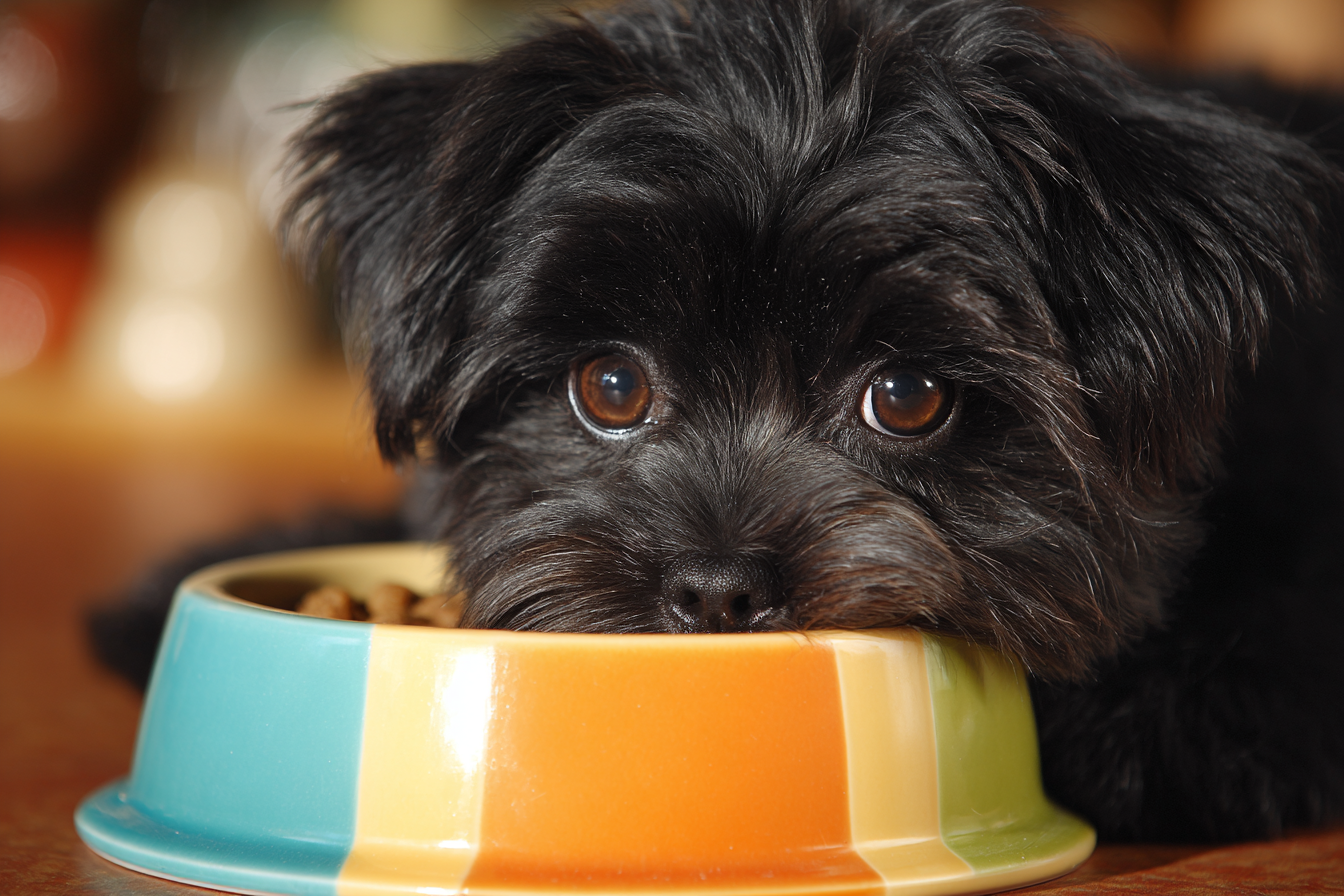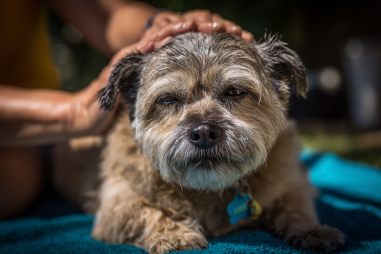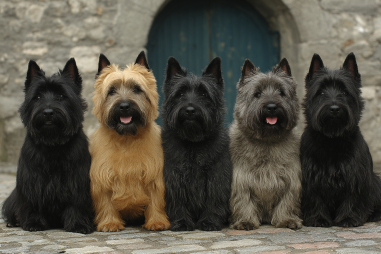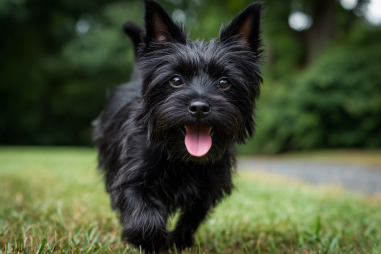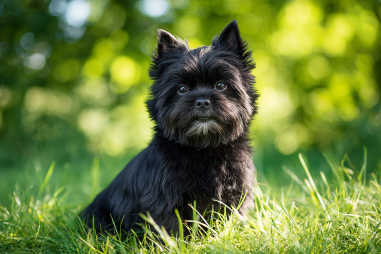Feeding your Affenpinscher the right diet is a crucial part of ensuring their health, happiness, and vitality. These small, lively dogs may be tiny in size, but they have unique nutritional needs that help sustain their energetic nature and maintain their charming personality. Understanding what foods to offer, appropriate portion sizes, and which ingredients to avoid can make a significant difference in your Affenpinscher’s overall well-being. In this article, we’ll explore everything you need to know about the diet and nutrition of your Affenpinscher to keep them thriving.
Nutritional Needs of Affenpinschers
Affenpinschers are a small breed, typically weighing between 7 and 12 pounds, with a high energy level and playful temperament. Their nutritional needs revolve around supporting their metabolism, maintaining muscle tone, and fostering healthy skin and a shiny coat. A balanced diet for an Affenpinscher should be rich in high-quality proteins for muscle maintenance, healthy fats for energy and coat health, and essential vitamins and minerals that support immune function and bone strength.
Protein is the most important macronutrient for Affenpinschers because it provides the building blocks for muscles, enzymes, and hormones. Look for diets where the primary ingredient is a named animal protein such as chicken, turkey, or fish. Healthy fats, such as those from fish oil or flaxseed, supply the energy needed to fuel their spirited activities and help keep their skin hydrated.
Carbohydrates provide energy but should come from wholesome sources like sweet potatoes, brown rice, or oats rather than fillers like corn or wheat. Additionally, Affenpinschers benefit from antioxidants like vitamins A, C, and E that protect their cells from damage, and glucosamine that supports joint health — especially important as dogs age.
Recommended Diets for Your Affenpinscher
Kibble
High-quality dry kibble is a convenient and widely used option that can meet your Affenpinscher’s nutritional needs if selected carefully. Choose brands that use premium ingredients, have a good balance of protein, fats, and carbohydrates, and avoid artificial colors, flavors, and preservatives. Some kibble formulas are specifically designed for small breed dogs, with smaller kibble sizes to ease chewing and tailored nutrition for their metabolic rates.
Raw Diet
The raw diet, sometimes called “BARF” (Biologically Appropriate Raw Food), consists of uncooked meat, bones, organs, and a small portion of fruits and vegetables. This diet is favored by some owners because it mimics the natural ancestral diet of dogs and can promote a shinier coat, cleaner teeth, and increased energy. However, it requires careful balancing to ensure all nutritional needs are met and strict hygiene to prevent bacterial contamination.
Homemade Diets
Preparing homemade meals for your Affenpinscher allows you to have complete control over ingredients and can be beneficial, especially for dogs with allergies or sensitivities. These diets should include lean meats, vegetables, grains, and supplements as needed. However, it’s important to consult with a veterinarian or canine nutritionist to guarantee your dog receives balanced nutrition and does not develop deficiencies.
Portion Sizes and Feeding Schedules
Because Affenpinschers are small dogs, they require carefully controlled portion sizes to prevent obesity, which is common in small breeds. Overfeeding can lead to weight gain and associated health problems such as joint strain and diabetes. As a general guideline, an Affenpinscher typically needs around 40 to 50 calories per pound of body weight daily, though activity level and metabolism can affect this.
Dividing the daily food amount into two to three meals is recommended. Feeding smaller, more frequent meals helps maintain consistent energy levels and aids digestion. For puppies, three to four meals per day are best to support their rapid growth. As your dog ages, portion adjustments and feeding frequency can be modified accordingly.
Ingredients to Avoid
While some ingredients are beneficial, others should be avoided to keep your Affenpinscher healthy:
- Artificial preservatives and colors: These additives can cause allergies and contribute to health problems over time.
- Excess fillers: Ingredients like corn, soy, and wheat provide little nutritional value and can lead to digestive upset or allergies.
- Excess salt and sugar: High levels of salt and sugar are harmful to dogs and can affect heart and metabolic health.
- Chocolate, grapes, onions, garlic: These foods are toxic to dogs and should never be given.
- Fat trimmings and bones: These can cause digestive issues or choking hazards.
Treats and Supplements
Treats are a great way to reward your Affenpinscher but should be given in moderation to avoid excess calorie intake. Opt for healthy treat options like small pieces of cooked chicken, baby carrots, or specially formulated low-calorie dog treats. Avoid human snacks high in salt, sugar, and fat.
Supplements can be beneficial in certain cases, particularly for coat health, joints, and digestive support. Omega-3 fatty acids from fish oil are excellent for keeping the coat glossy and skin healthy. Glucosamine and chondroitin supplements can help prevent joint issues, especially as your dog ages. Probiotics may aid digestion and boost immune function. Always consult your vet before introducing supplements to your dog’s diet to ensure safety and appropriate dosing.
Tips for Picky Eaters
Picky eating can be a challenge for many dog owners. Affenpinschers may sometimes be finicky due to their sensitive palates and personalities. Here are some tips to encourage healthy eating habits:
- Mix flavors and textures: Rotate between different proteins or combine wet and dry food to keep meals interesting.
- Warm up food slightly: Warming food can enhance aroma and entice appetite.
- Establish feeding routines: Serve meals at set times and remove uneaten food after 20 minutes to avoid grazing.
- Avoid feeding table scraps: These can encourage bad habits and unbalance their nutrition.
- Check for health issues: Sometimes a decrease in appetite signals health problems, so consult your vet if picky eating persists.
Monitoring Weight and Health
Maintaining an optimal weight is vital for your Affenpinscher’s long-term health. Regularly weigh your dog and assess body condition by feeling the ribs and observing the waistline. Your dog should have a visible waist when viewed from above and a slight tuck-up in the abdomen when viewed from the side.
If you notice weight gain or loss without changes in diet or activity, consult your veterinarian to rule out underlying medical issues. Keeping a feeding journal and tracking treats and snacks can help control caloric intake more precisely. Regular exercise combined with proper diet helps keep your Affenpinscher fit and happy.
Feeding your Affenpinscher a balanced and nutritious diet tailored to their unique needs goes a long way in ensuring they live a healthy, active, and joyful life. Whether you choose commercial kibble, homemade meals, or a raw diet, understanding portion control, ingredients, and special care for picky eaters will help you give your furry companion the best possible nutrition. By keeping an eye on their weight and overall health, you can enjoy many vibrant years with your small but spirited Affenpinscher.

